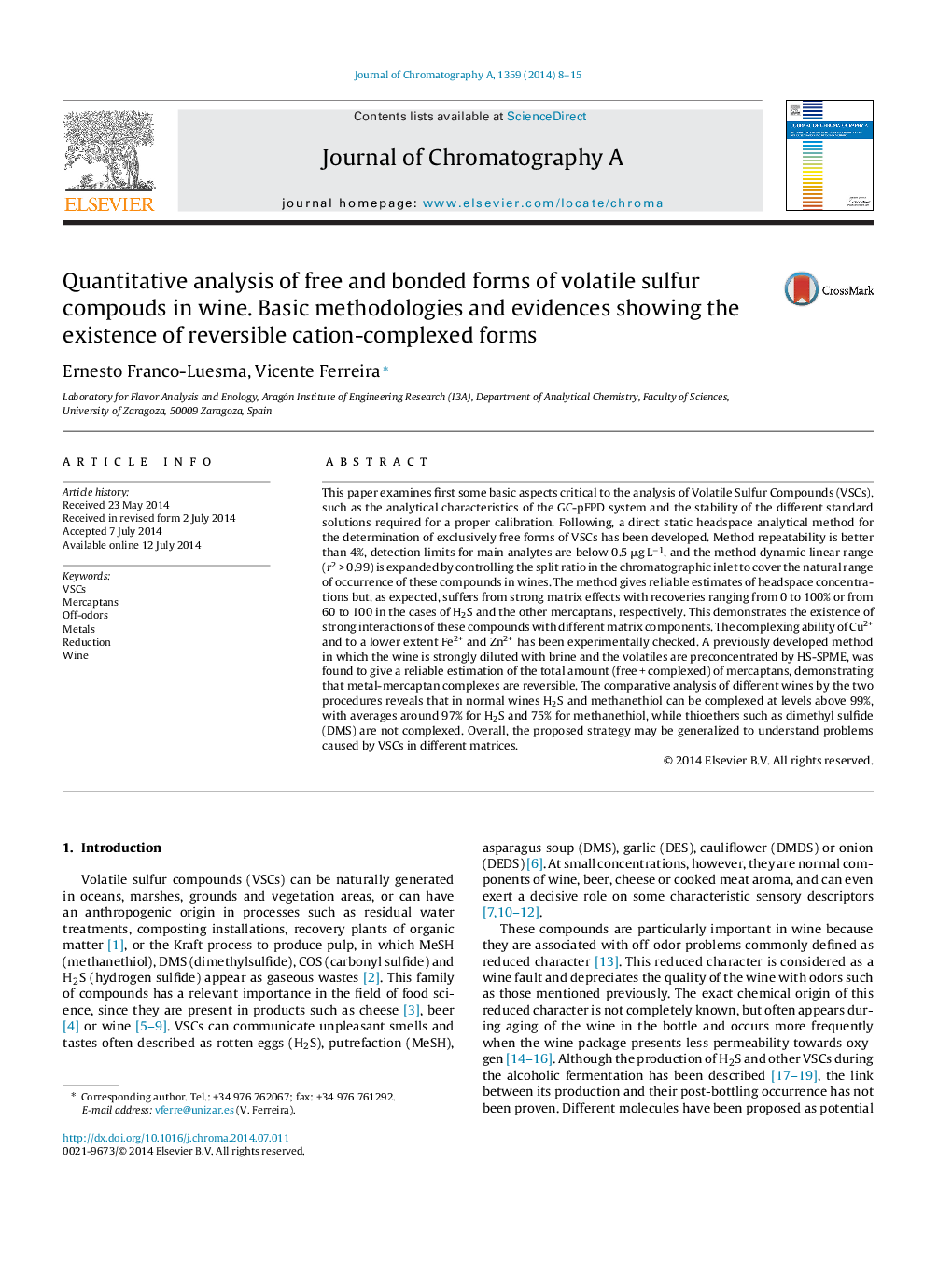| Article ID | Journal | Published Year | Pages | File Type |
|---|---|---|---|---|
| 1199377 | Journal of Chromatography A | 2014 | 8 Pages |
•Reliable headspace method proposed for analysis of free forms of VSCs in wine.•Dilution in brine-SPME method for analysis of total forms of VSCs in wine.•Normal wine contain large pools of complexed non-volatile forms of mercaptans.•Cu2+ and also Fe2+ and Zn2+ form reversible complexes with mercaptans.•Complexes could protect mercaptans from oxidation.
This paper examines first some basic aspects critical to the analysis of Volatile Sulfur Compounds (VSCs), such as the analytical characteristics of the GC-pFPD system and the stability of the different standard solutions required for a proper calibration. Following, a direct static headspace analytical method for the determination of exclusively free forms of VSCs has been developed. Method repeatability is better than 4%, detection limits for main analytes are below 0.5 μg L−1, and the method dynamic linear range (r2 > 0.99) is expanded by controlling the split ratio in the chromatographic inlet to cover the natural range of occurrence of these compounds in wines. The method gives reliable estimates of headspace concentrations but, as expected, suffers from strong matrix effects with recoveries ranging from 0 to 100% or from 60 to 100 in the cases of H2S and the other mercaptans, respectively. This demonstrates the existence of strong interactions of these compounds with different matrix components. The complexing ability of Cu2+ and to a lower extent Fe2+ and Zn2+ has been experimentally checked. A previously developed method in which the wine is strongly diluted with brine and the volatiles are preconcentrated by HS-SPME, was found to give a reliable estimation of the total amount (free + complexed) of mercaptans, demonstrating that metal-mercaptan complexes are reversible. The comparative analysis of different wines by the two procedures reveals that in normal wines H2S and methanethiol can be complexed at levels above 99%, with averages around 97% for H2S and 75% for methanethiol, while thioethers such as dimethyl sulfide (DMS) are not complexed. Overall, the proposed strategy may be generalized to understand problems caused by VSCs in different matrices.
